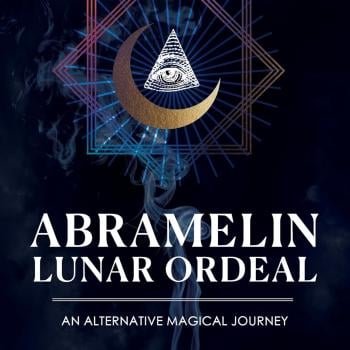Editors' Note: This article is part of the Patheos Public Square on Homeschooling and Public Education. Read other perspectives here.
"O mankind, We have created you male and female, and appointed you races and tribes, that you may know one another. Surely the noblest among you in the sight of God is the most god-fearing of you. God is All-knowing, All-aware." ~ Quran, 49:13, trans. A.J. Arberry
"Until the lions produce their own historian, the story of the hunt will glorify only the hunter." ~ West African proverb
I could cop out and say that I homeschool because of my son's health issues. It was certainly a factor in the final decision. Putting it down to health reasons alone, however, would not be completely honest. I've opted against public education for my son because it goes against our family's values. But not for the reasons you might think.
I used to believe the stereotypes about homeschoolers. I envisioned deeply conservative and pious families sheltering their children from the perceived threats of secular education and the broader world. Some families do see homeschooling as a way to ensure that their children won't yield to secular temptations, and those families draw the most attention from writers looking to tell unusual stories. But instead of using homeschooling as a way to shield my son from the world, homeschooling has been the best way to ensure that my son sees more of it.
Public schools are highly segregated by race and class, and options are even more limited for disabled children. Private schools are not obligated by law to provide adequate support for disabled children, and charter schools seeking to prove their fitness can shy away from students who might threaten their test score averages. Trying to place my son in a public school would likely mean that he would be in a monoracial, working class student body. With homeschooling, my son regularly meets with people from all walks of life, whether it be in swim class, the local homeschooling co-op, his day program at the hospital, or museum groups. Some of the families we meet with are like his own; most are different, giving us opportunities to connect with people that he might only read about otherwise.
Our library has always been the hub of our home, and I've read to my son since before he was born. He has classic children's literature, silly rhyme books, and now, textbooks. I've been careful with his book selections, but there's a troubling Eurocentric and male-dominated trend in textbooks and instructional materials, with all others in secondary roles, if present at all. The is just beginning to be examined by agents and publishers. This goes beyond the expected issues with social studies; it shapes text, cover designs, and layouts across subject areas. Subtly, through the years, this gives children a sense that there are those who shape the world, and those who live in it, which is but half a tale.
With homeschooling, I shape lessons to tell the story of humanity as we experience it; not as the vast majority of humans waiting around for European men to bring civilization, but as stars in their own stories. I want my son to know that the Bahraini family in his therapy group has a history just as important as those of the settlers described in his books. We read folk tales as core literary texts, not as reluctant additions. Our book selections place people who are like him at the forefront of their own stories, so he learns that he is not an elective or a sidebar that he will learn about in later grades, but a main character in a powerful story, one that began before he was born and whose chapters he will have the opportunity to write. I make sure the examples of people creating, inventing, leading, and fighting include women in central roles. We discuss societies and governments as systems that all peoples develop. We use primary sources to get histories from peoples as they tell them, paired with the interpretations of those who came from elsewhere. It's hard to know other nations and tribes if you're taught from a Eurocentric perspective, for no one was born to be a bit player in someone else's story.
This style of homeschooling isn't easy. It means that we can't just purchase a curriculum and proceed, as even materials that are marketed for their multicultural influences often assume Eurocentric norms. The small but growing market for Islamic homeschooling materials has helped. Those materials, however, are marketed toward the oft-discussed conservative crowd. When chatting with other users, I have to remember not to divulge that I'm teaching my son Latin dance as part of P.E. (He's not bad at the merengue, but I think the mambo will have to wait.) I keep an eagle eye on worksheets and have had to interrupt a reading passage for an editorial on why it's not okay to assume that mommies will be the ones to do housework while daddies relax.
As he gets older, homeschooling will have new challenges and opportunities. A chemistry lab might be a tall order. But his growing awareness of the world will yield encounters with people whose lives are very different from his own, and new questions to grapple with. I pray I'm able to continue to respond to his curiosity about different people with answers that are competent and respectful to all. Insha'Allah, as he sees people like and unlike himself, he will learn to value his own story as much as others'. And while that might not get me on a reality show, it may help him shape a better reality.
9/7/2016 4:00:00 AM




